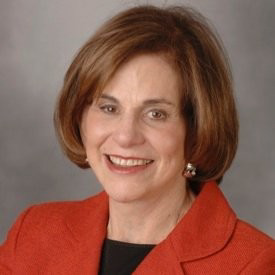Leadership Peer Coaching Groups
Leadership Peer Coaching Groups
An Opportunity to Develop Your Coaching Skills
Leadership Peer Coaching Group members provide mutual support to each other through building a small leadership community that fosters positive change for individuals and their institutions, solving challenging leadership issues, and giving and receiving genuine feedback.
Linda Basch, CFE Leadership Consultant, will lead the 2023-24 Leadership Peer Coaching Groups. Groups meet four times a semester for 2.5 hours each time. During COVID, the meetings are virtual.
Who Should Apply?
This program is for graduates of the CFE Leadership Fundamentals or Women ADVANCE Leadership programs.
Apply for Leadership Peer Coaching Groups
Graduates of CFE Leadership Fundamentals or Women ADVANCE Leadership may contact Linda Basch, CFE Leadership Consultant.
Peer Coaching Groups Topics:
- Personal career growth and productivity
- Solving challenging leadership issues
- Giving and receiving genuine feedback
- Building and leading academic teams
- Fostering the professional development and engagement of junior colleagues and peers
What Participants Say
What is going well in this learning process?
“Getting some good feedback from others (both as coach and coachee).”
“I am learning to coach in many different situations.”
“I am beginning to feel more confident when asking the coaching questions. I don’t have to refer to the list of questions as often. I also avoid the leading questions more often now as well.”
Participants credit Peer Coaching Groups with:
- Providing a safe space in which to think strategically and develop clarity around challenging issues
- Decreasing the sense of isolation faculty members can feel in a large research institution
- Enabling a spirit of collaboration that advances professional growth and institutional goals.
Curriculum
The Curriculum for Peer Coaching Groups is built on three components:
- The GROW Coaching Methodology emphasizes curiosity and active listening to understand the coachee’s situation and goals and guided conversation that helps coachees identify options and steps for moving forward.
- The development and strengthening of EQ skills such as self-awareness, empathy, emotional comfort, and courage are part of the toolkit for coaches to be trusted partners to coachees.
- The creation of a coaching mindset and skills enable the development of ongoing collaboration and empowerment among teams, academic units, direct reports, and peers. Through this paradigm shift in leadership approach, Coach-Leaders use active listening, curiosity, and guided questions to help their units/teams arrive at collaborative solutions in which all parties have had a voice. This approach also opens the door to fresh perspectives.
For more information, please contact Linda Basch.





